Hispanic Heritage Month: Something Not to Miss
Driving into El Paso, Texas, at night on I-10W remains a glorious sight to behold.
AP & Honors Mathematics
Explore Wiley titles to support both AP and Honors mathematics instruction.
Literacy Skills & Intensive Reading
Connections: Reading – Grades 6–12
Empower student success with a proven intensive reading program that develops strong reading skills in striving readers.
Drama, Speech & Debate
Basic Drama Projects 10th Edition
Build students’ confidence and competence with comprehensive, project-based theatre instruction.
Literature
Connections: Literature
Support learners as they study dynamic, relevant texts and bring the richness of diverse voices to students through literature.
Literature & Thought
Develop critical thinking, reading, and writing across literacy themes, genres, historical eras, and current events.
Language Arts
Vocabu-Lit® – Grades 6–12
Help students build word power using high-quality contemporary and classic literature, nonfiction, essays, and more.
Connections: Writing & Language
Help students develop grammar, usage, mechanics, vocabulary, spelling, and writing and editing skills.
Reading/English Language Arts
Measuring Up to the English Language Arts Standards
Incorporate standards-driven teaching strategies to complement your ELA curriculum.
English Language Learners
Measuring Up for English Language Learners
Incorporate research-based best practices for ELLs with an approach that includes a focus on language acquisition strategies.
Mathematics
Measuring Up to the Mathematics Standards
Incorporate standards-driven teaching strategies to complement your mathematics curriculum.
Foundations
Measuring Up Foundations
Help students master foundational math skills that are critical for students to find academic success.
Science
Measuring Up to the Next Generation Science Standards
Give students comprehensive NGSS coverage while targeting instruction and providing rigorous standards practice.
Assessment
Measuring Up Live
Deliver innovative assessment and practice technology designed to offer data-driven instructional support.
For a better website experience, please confirm you are in:

Back when I was a whippersnapper wearing dungarees and walking to school and back in the snow uphill both ways, nothing beat the school book fair. When I was the K-12 English Language Arts and Reading coordinator in a small southside district in San Antonio, there was still nothing that beat the school book fair.
Roaming the aisles and offerings of the book fair in that elementary school library as an adult, I felt the same thrill I had all those years ago surveying the possibilities in front of me. I casually glanced at the titles spread over tables and shelves until the art of Duncan Tonatiuh on the cover of his book Separate Is Never Equal: Sylvia Mendez & Her Family’s Fight for Desegregation hooked my attention and refused to let go.
The story detailed the experience of young Sylvia Mendez when she and her family moved to Westminster, California and tried to enroll in the school closest to their home. They were turned away and told they would have to attend the Mexican school. Instead of attending the school with the “handsome building” where “tall trees lined the street in front of the school,” and “there was a playground with monkey bars and red swing,” and where the “hallways were spacious and clean,” Sylvia and her family would have to attend Hoover Elementary, “better known as the Mexican School.” Hoover Elementary did not have a playground. It was a “clapboard shack” where a cow pasture surrounded the school and “students had to eat their lunch outside, and flies would land on their food.”
Though her father asked why his children could not attend the school closest to their home, he was given no reason other than, “That is how it is done.” But when the family took the case to court, he learned the true reasons. Though the superintendent of Garden Grove schools testified that students were sent to the Mexican school to improve their English (Slyvia and her family spoke perfect English), he ultimately admitted that Mexican children were sent to Hoover Elementary because “They needed to learn cleanliness of mind, manner, and dress,” which he claimed they were not learning at home. He also said, “They have problems with lice, impetigo, and tuberculosis. They have generally dirty hands, face, neck, and ears.”
But that wasn’t the worst of it.
The superintendent testified that along with being inferior to White students in personal hygiene, the Mexican students were inferior to White students in scholastic ability and “[i]n their economic outlook, in their clothing, and in their ability to take part in the activities of the school.”
Mr. Mendez finally had an answer about why his children had to attend the Mexican school.
I stood in that elementary school reading this children’s book in shock. Not shock that people could hold such ideas but shock that I knew nothing of this story. My middle name, my mother’s maiden name is Méndez. I shared the name of the very real people in this book to whom this happened to, yet I had not an ounce of knowledge of this. I did not know until reading this children’s book that attorneys arguing in Mendez v. Westminster School District were part of the legal team that argued Brown v. Board of Education.
My name was part of history, and I might have never known if not wandering through a school book fair.
But that’s not the shocking part.
The shocking part is that too much of school instruction ignores the contributions of Hispanics. As we celebrate Hispanic Heritage Month, teachers have the opportunity to bring attention to the contributions of Hispanics in art, literature, history, politics, society--life. Artists and writers like Duncan Tonatiuh who was born in Mexico City, grew up in San Miguel de Allende, Mexico, and has written and illustrated numerous books for children.
In that small elementary school library, as I turned pages and learned of a history I didn’t know, I took a moment to look around and make sure no one could see the tears forming in my eyes (I’ve since moved past worrying what others would think of a grown man tearing up in an elementary school library) at what struck me as one of the most significant elements of the Mendez story.
Though the Mendez family won the case, the Westminster School District appealed (take a moment to let that sink in) and the case went to the state court. In the new case, (this is the moment that made me tear up) the Mendez received support from The National Association for the Advancement of Colored People, the Japanese American Citizens League, the American Jewish Congress, and other organizations “who sent letters with information relevant to the case and asked the judge to rule in favor of the Mendez family.”
That’s pretty moving stuff.
Through the years, I have used the children’s book Separate Is Never Equal with every class of high school students I have taught. And the beauty of the lesson I use with this book is that you can use it with any of the books and poems shared on this month’s and every month’s blog posts.
That’s pretty moving stuff too.
Interested in buying any of the books mentioned in this post? Visit our classroom libraries page.
Download the lesson below!
Michael Méndez Guevara is a former high school journalism and English teacher who spent his time in the classroom helping students see themselves as writers and fall in love with reading through the world of young adult literature. As an educational sales consultant with Perfection Learning®, Michael works with teachers and schools on improving their literacy instruction and providing resources to help students achieve academic success. He has taught elementary school, middle school, and high school and has worked as a district level leader and served on the Texas state standards revision committee that developed the state’s current literacy standards. He is the father of three adult sons, the youngest a student at the University of Kansas—Rock Chalk! Michael is working on a professional development book for literacy educators and currently has agents reading the manuscript of his young adult novel, The Closest Thing to a Normal Life. When he's not reading, writing, or running, Michael is fully committed to watching as much Law & Order as possible.
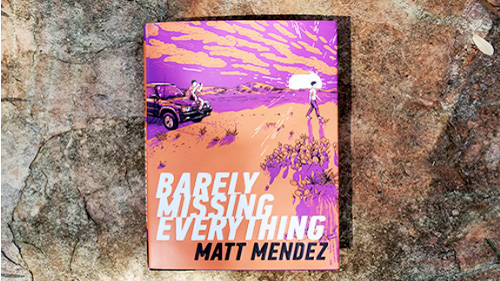
Driving into El Paso, Texas, at night on I-10W remains a glorious sight to behold.

Growing up with three brothers and not Catholic, quinceañeras weren’t really a thing we did. But when Yvette Guerrero turned 15 and Betty Espinosa...
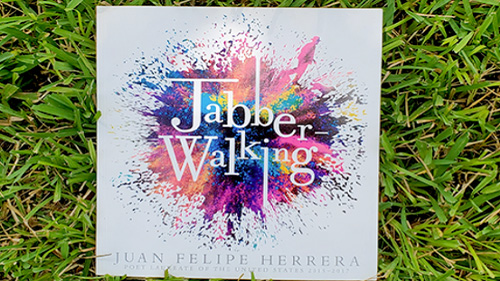
When my mother was going to school in the panhandle of Texas, she and her friends were punished if they spoke Spanish in school. When my brothers and...
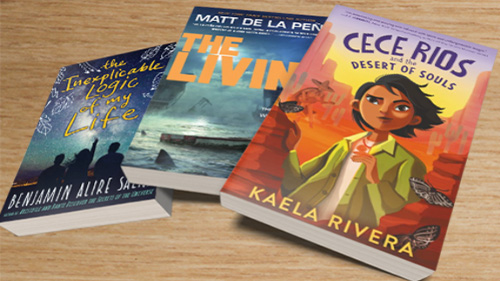
In my first period class of sophomores at a high school on the Southwest side of San Antonio, I had one White student, one Muslim student, and the...

Back in college, an older Latino gentleman asked me, “When you have kids one day, are you going to raise them as Mexican or white?” The question...
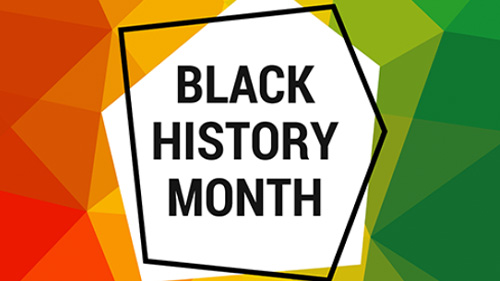
On December 20, four days after his semester finished, my youngest son flew home for Christmas break. On December 29, he flew back—19 days before his...
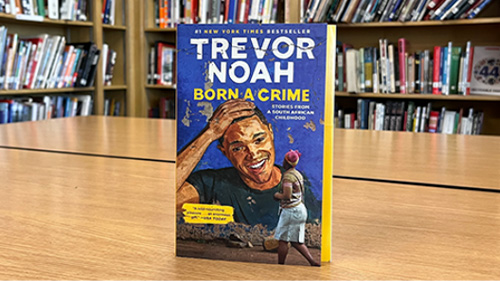
Born a Crime: Stories from a South African Childhood is a memoir by Trevor Noah about his upbringing in South Africa and how he became a popular...
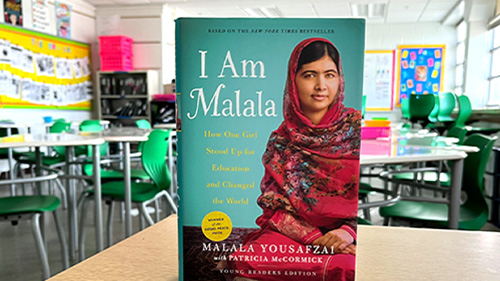
In recent months, the Taliban in the Middle East has taken over once again after American troops removed themselves. The first person I thought of...
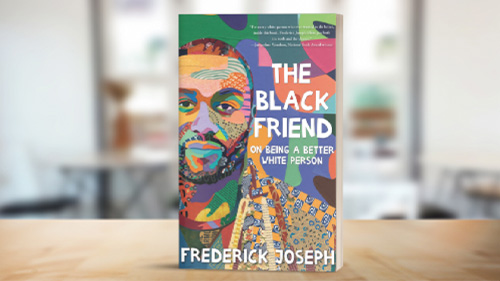
In just the past few weeks, I’ve seen two friends post on social media about their spirit animals. Neither of them is Native American. Recently,...

If we all trace our lineage back generation by generation, you will almost always find a fearless woman at the forefront of care, kindness, and the...
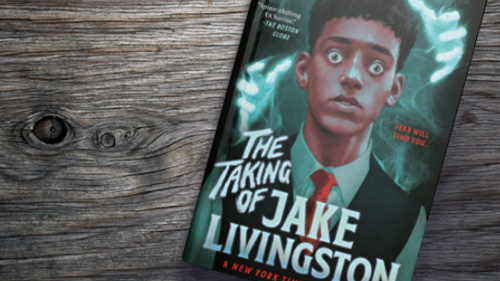
My mother tells this story of being so exhausted that she couldn’t get up to rock my older brother, her first child, back to sleep in the middle of...
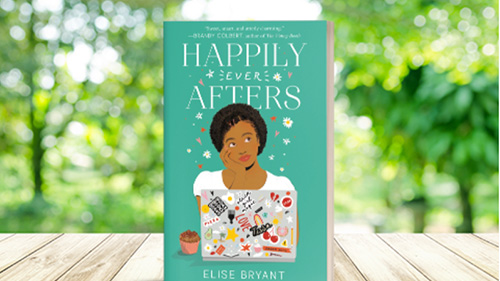
Back when I taught at Southwest High School in San Antonio, Sharri Peterson, who dubbed herself my work wife, was my school spirit partner. Whenever...
